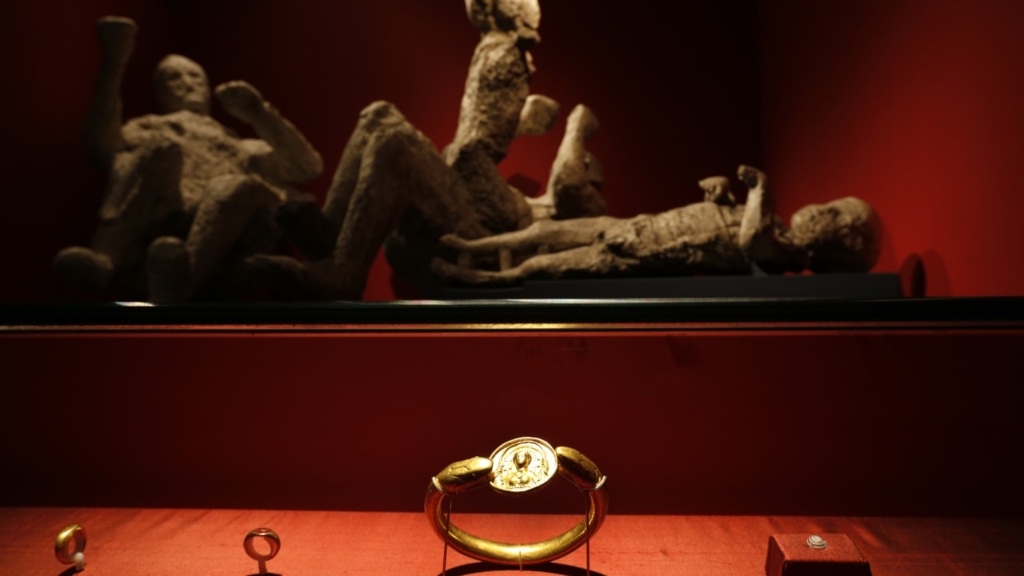Jewelry found in the ruins of a house in Pompeii are displayed, backdropped by the casts of two adults and two children who died together, are seen housed at the British Museum in London in 2013.
Lefteris Pitarakis/AP
hide caption
toggle caption
Lefteris Pitarakis/AP
When a volcanic eruption buried the Roman city of Pompeii nearly 2,000 years ago, a thick layer of volcanic ash encased the bodies, preserving their forms.
The bodies, later immortalized by plaster casts, inspired narratives about who the victims were: for example, a mother holding her child, and two sisters embracing in their final moments.
New DNA evidence has upended some of those assumptions about the identities, lives and relationships of the ancient people. A group of four long-dead Pompeiians, for instance — once thought to be parents and their children — turned out to have no biological relation to one another.
A team of archaeologists and geneticists from the University of Florence in Italy, Harvard University and the Max Planck Institute for Evolutionary Anthropology in Germany, were able to identify the sex and genetic ancestry of five individuals who died in the Mt. Vesuvius explosion in 79 CE.
Their findings, published this week in the journal Current Biology, relied on DNA pulled from Pompeiians’ remains that were preserved with casts made in the 1800s by filling the voids left by their decomposed bodies.
Alissa Mittnik, a co-author with the Max Planck Institute, said in a news release that the findings “highlight the importance of integrating genetic data with archaeological and historical information to avoid misinterpretations based on modern assumptions.”
Another discovery revealed that an adult wearing a golden bracelet and holding a child, long believed to be a mother and child, were actually an adult man and a biologically unrelated child. The pair of individuals thought to be sisters, meanwhile, in fact include at least one genetic male.
“The findings challenge enduring notions such as the association of jewelry with femininity or the interpretation of physical proximity as evidence of familial relationships,” said Professor David Caramelli, from the Department of Anthropology at the University of Florence.
The researchers also warned against making similar misjudgments based on the new DNA findings.
“Instead of establishing new narratives that might also misrepresent these people’s experiences, the genetic results encourage reflection on the dangers of making up stories about gender and family relationships in past societies based on present-day expectations,” said co-author David Reich, a Harvard genetics professor, said in a press release.





Yorumlar kapalı.